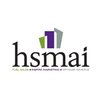HSMAI Research: 10 Talent-Related Trends Hospitality Leaders Should Know About
By Karen Wollard, HSMAI Foundation Research Manager

The devastating COVID-19 pandemic laid bare the talent crisis that has been slowly brewing in the hospitality industry since at least 2007. Sales, marketing, and revenue optimization talent has always been a key ingredient in the success of the industry, yet now we are facing a new landscape. What has changed over the past two years? How should companies be moving forward?
The following outlines the talent-related trends the HSMAI Foundation has identified and will discuss in its new report, The State of Hotel Sales, Marketing, and Revenue Optimization Talent: 2020-2021.
1. Corporate culture and values matter.
Restoring trust and commitment are essential across the industry, as is rekindling the passion for hospitality. Organizations with people-first cultures made impossible decisions without betraying that trust. Corporate culture will dictate how teams can function and thrive. This is even more important now that four generations are in the workforce for the first time ever.
2. Expectations of leadership are changing.
Strong leaders with diverse teams moved decisively and with empathy. Leadership humility and servant leadership have proven to be productive. Authenticity, accountability, and transparency are the trends in leadership that matter.
3. Mental health, safety, and well-being move to the forefront.
These became essential considerations for surviving the crisis for employees who remained onsite, those who were furloughed, and individuals working from home.
4. Doing more with less is a treadmill.
With the abrupt shutdowns, initial cutbacks were a strategy for survival. Talent was redeployed to ensure multiple tasks were completed with less cost. This became a two-edged sword, as workers insisted on compensation increases and flexibility to return to work. Burned out talent simply resigned or left the industry.
5. Silos continue to disappear.
Sales, marketing, and revenue management teams — stripped to their minimums — became partners who learned from each other, sought out new tools for finding business, and became generalists who had to do what it took to get the job done.
6. The above-property office community changes.
Remote work became essential in an industry based on personal interaction. Organizations are wrestling with how to put policies and guidelines in place to maximize the quality of community and collaboration as workplaces reopen. Having had time to reflect, people are choosing to prioritize work-life balance.
7. KPIs and incentive plans are being reevaluated.
Salespeople watched all their business fall off, while marketers found their entire plans were no longer useful. Revenue professionals’ analyses and strategies were upended. Goal setting is a particular challenge with individual goals and variable compensation being adjusted to an uncertain environment.
8. Talent pipelines went dry, and new channels have to be tapped.
The talent ecosystem requires repairs. Seventy-five percent of hospitality schools report falling enrollment, while Joblist reports that, as of Q2 2021, 60% of job seekers are not interested in a hospitality job. Innovative approaches for recruiting are needed. Returning employees are demanding more choice and control over their pay, timing, hours, schedules, compensation, benefits, working conditions and management.
9. Development, reskilling, and upskilling are necessities as technological acceleration continues.
Learning for the future and cross-training for flexibility are essential. The future requires associates who can adapt, adjust, innovate, create, and collaborate. Building skills and abilities for a more resilient workforce can buffer volatile market changes. COVID-19 accelerated technology adoption, specifically in the ways we communicate and collect data, driving innovation across commercial applications. Technology is continuing to change us in ways we don’t yet recognize or see coming.
10. Organizations can lower turnover and increase retention.
Diverse industries have been poaching sales, marketing, and revenue professionals with the lure of higher compensation and quality of life. Burnout, better opportunities, regular hours, and changing generational values are prompting talent to look elsewhere. The solutions start with reigniting the passion for hospitality and showing the positive changes organizations within the industry have made to acknowledge the damage done and prioritize talent well-being.
This is an excerpt from the HSMAI Foundation’s The State of Hotel Sales, Marketing, and Revenue Optimization Talent: 2020-2021 report. To learn more about the HSMAI Foundation and its mission, visit the Foundation website.
